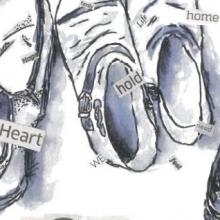
David Sterratt writes: In partnership with Edinburgh Interfaith Association, Drummond Community High School hosted Holocaust Memorial Day: an Evening of Remembrance, on Wednesday 25 January 2017. An audience of hundreds – from all faiths and none – attended.
The theme of the evening was ‘How does life go on?’ The compelling programme included guest speakers, as well as readings, poetry and music from Drummond’s pupils. Reflections on the evening are now available on the Drummond website. Here are my reflections and recollections.
Recent events have reinforced my view that a slide into fascism is an ever-present danger, so I was glad that Drummond pupils had been learning about the Holocaust and genocide in preparation for the evening.
Former pupil Claire McDougall (studying Genocide History at Edinburgh University) told of the common features that lead to holocaust and genocide: control of the media; the spread of fear; dehumanisation of the out-group, be it Jews, Tutsis or others.
Former pupil Zoe Clack (studying International Relations at St Andrews University) reflected on a trip to Auschwitz, and said how it was the individual stories that brought home the enormity of the Holocaust as much as the place itself.
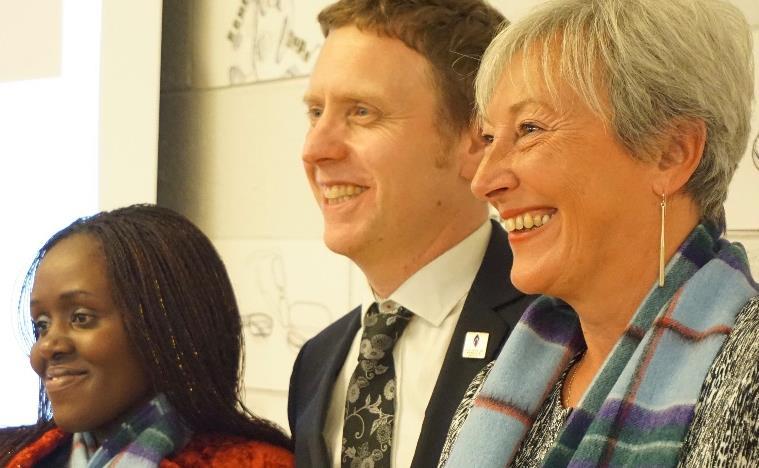
From left to right: Guest speaker Umutesi Stewart, survivor of the 1994 Rwandan Genocide; Iain Stewart, Chairman of EIFA; Guest speaker Saskia Tepe, whose mother survived Auschwitz.
It was therefore fitting that we had two stories from genocide survivors. Saskia Tepe told the story of her mother Brigitte, a ‘Mischling’ (mixed race) Jew of the first degree. Prevented from marrying a Christian because of her heritage, she managed to avoid the Holocaust by a combination of luck and judgement. A leap from an open railway wagon into a snowdrift saved her from Auschwitz. On the run in Dresden, her intuition told her to leave the city on the same night as it was bombed by the Allies. She was recaptured, but survived the Holocaust and the attentions of the Russian ‘liberators’.
Her life over the next 16 years was in displaced persons camps, and it was into this world that Saskia was born, having to be in an orphanage or fostered for some of her life due to her mother’s TB. After moving to the UK in 1961, Brigitte and Saskia then faced discrimination because they were German. Saskia was called a ‘Nazi Pig’ at school and Brigitte found it difficult to find permanent work – a reminder against the complacency of being ‘the good guys’. Though Brigitte did manage to settle eventually, the story was of a life completely disrupted.
Umutesi Stewart is a survivor of the 1994 Rwandan Genocide. Her harrowing story started with a neighbour warning her sick mother that the Hutus would be at their house in 20 minutes. Umutesi, then in her early teens, was put in charge of her brother and sisters, with her youngest sister being strapped to her back. Her mother had to stay and face the Hutus. There followed a long walk to the Congo, during which her brother, already so malnourished his teeth were falling out, was beaten to death by Hutu militants. Umutesi and her sisters then spent years of exile in the Congolese jungle.
The story told of the confusion and terror of genocide.
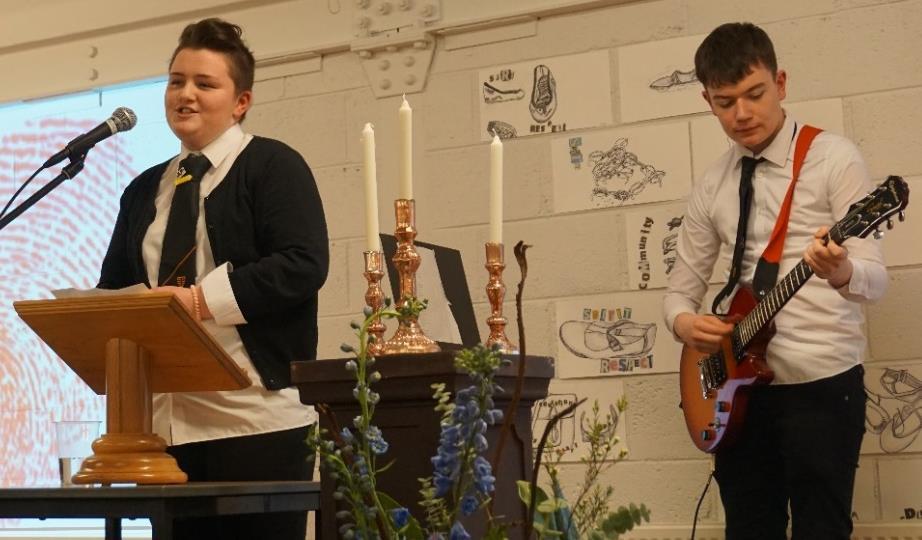
Ciara MacDonald & Rhys Hackett (S5): ‘Love will build a bridge’
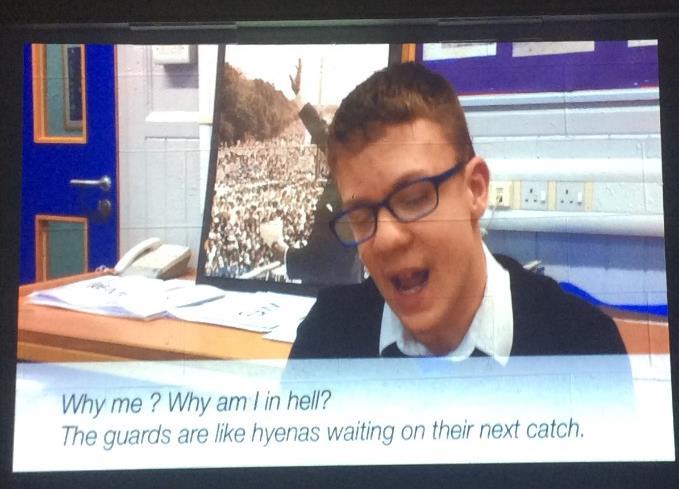
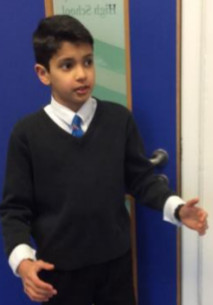
Left: Callum Williamson (S2) reading his own poem. Right: Nemo Ganguli (S1) reading Pastor Niemoller’s poem ‘First they came ...''.
Where is hope in the midst of all of this, and how does life go on? Answers came from the Drummond pupils’ accomplished and moving poetry, art and music. It’s doubtless a cliché and a sign of me ageing, but I couldn't help but be encouraged by their freshness and hope. Each generation has the potential and desire to move on, a bit, from the previous generation.
Another answer came from Rabbi Rose’s singing and lighting of candles, which made me think about the endurance of tradition handed down over centuries, and how this sustains a community. One answer was in the diversity in speakers, pupils and audience.
The separation and dehumanisation of groups that is the precursor to genocide is not a given. We can all gather and remember together - and we need to work at it.

Invitation designed by Amelia Kerr (S6)
[This article was amended by the author on 3.3.17 to more accurately reflect the circumstances of Umutesi Stewart's brother's death.]